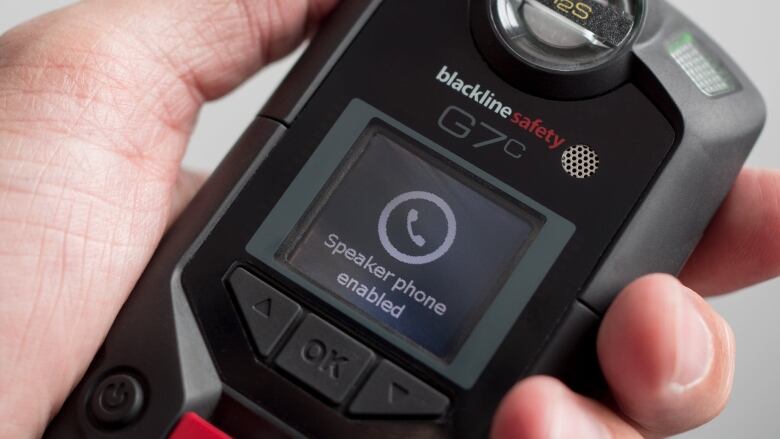New devices will increase safety among front-line probation and parole staff in the north
Ontario announces $85K for Blackline devices, which offer a number of safety features

The provincial government says the purchase of new handheld safety devices will increase the safety of frontline probation and parole officers working in remote areas of Northern Ontario.
The province announced Tuesday it was spending about $85,000 to equip parole and probation officers in northwestern Ontario with Blackline devices.
They offer a number of features, including two-way voice and text communication, fall and no-motion detection, and silent alarms for quicker notification of first responders in the case of an emergency.
Scott McIntyre, the Ontario Public Service Employees Union (OPSEU)probation and parole representative, said the devices will help those working alone in remote areas.
"A lot of times we get locked into the area due to weather," he said. "There's the driving hazards, just the unique challenges with the remote communities, and being able to get access to them, and to provide them with the important services that probation and parole offers."
He said the devices have already been rolled out to workers in northern Ontario, as well as one office in the eastern region; the Blackline devices were tested in a 2019 pilot project.
"It's something that OPSEU had advocated for, didn't just drop out of the sky," McIntyre said. "We continue to revise our safety and security policies annually. And going back several years now, we had identified ...the risk to staff that are working in isolation or working alone."
However, while the devices will help, McIntyre said the time it takes first responders to get to remote areas during an emergency is still a concern.
"We're putting our front line officers into these communities that live day to day with the same concerns that we have, with respect to the response time," he said.
"You've got, you know, 10 minutes, the critical window there," McIntyre said. "And if you don't getthe medical response that you need,your chances of survival dramatically decrease."
"So we're still pushing for two staff members in all cases."












_(720p).jpg)


 OFFICIAL HD MUSIC VIDEO.jpg)
.jpg)



























































































